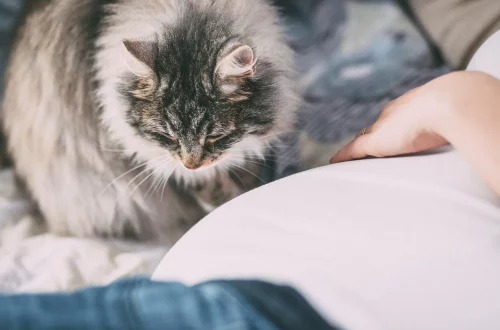
Why Do Puppies Breathe So Fast and What It Means for Their Health
Puppies are undeniably one of the most adorable creatures on the planet. Their playful antics, boundless energy, and innocent curiosity make them irresistible companions. However, as a new puppy owner, you may notice some peculiar behaviors, one of which is their rapid breathing. This phenomenon can be concerning, especially for first-time pet parents who may not understand the reasons behind it.
Puppies often breathe quickly, a behavior that can be attributed to various factors, from their physical activity levels to emotional states. Understanding why your puppy breathes so fast can help you better gauge its overall health and well-being. It’s essential to distinguish between normal and abnormal breathing patterns, as the latter could indicate underlying health concerns. Observing your puppy’s breathing during playtime, rest, and sleep can provide valuable insights into their health and comfort levels.
In this article, we will explore the reasons behind fast breathing in puppies and what it means for their health. By understanding these factors, you can ensure that your furry friend is happy and healthy.
Understanding Normal Breathing Patterns in Puppies
To comprehend why puppies breathe quickly, it’s essential first to establish what constitutes a normal breathing pattern. Generally, a healthy puppy will have a resting respiratory rate of about 15 to 40 breaths per minute. This rate can vary depending on several factors, including age, size, and activity level. Puppies, being naturally energetic and active, may exhibit higher respiratory rates, especially during play.
During physical exertion, such as running or playing with toys, it’s entirely normal for a puppy to breathe faster. This rapid breathing is a physiological response to increased oxygen demand as their bodies work to support their heightened activity levels. Additionally, puppies often pant when they are excited, anxious, or overheated. Panting helps them regulate their body temperature and cool down, making it a normal part of their behavior.
Another factor to consider is the emotional state of the puppy. When they are excited or anxious, their breathing may become quicker. This response is similar to humans; when we feel nervous or exhilarated, our heart rate and breathing patterns may change. Therefore, it’s vital to observe the context in which the rapid breathing occurs. If your puppy is playing or engaging in an exciting activity, fast breathing is usually nothing to worry about.
However, if you notice that your puppy is breathing rapidly while at rest or seems to be struggling to breathe, it may warrant further investigation. Understanding what is normal for your puppy is key to distinguishing between typical behavior and potential health issues.
Factors Influencing Breathing Rates in Puppies
Several factors can influence a puppy’s breathing rate, and being aware of these can help you interpret your puppy’s behavior more accurately. One primary factor is the breed of the puppy. Some breeds, particularly brachycephalic breeds like Bulldogs and Pugs, are predisposed to respiratory issues due to their short snouts. These breeds may naturally breathe faster or exhibit labored breathing, which may be mistaken for distress.
Another element to consider is the ambient temperature. Puppies are more likely to breathe faster in hot weather as they pant to cool themselves down. Hence, during summer months or in warmer environments, it is common for puppies to exhibit increased respiratory rates. Ensuring your puppy has access to fresh water and a cool, shaded area can help regulate their body temperature and prevent overheating.
Additionally, age plays a vital role in breathing rates. Young puppies tend to have faster breathing rates than adult dogs. As they grow and develop, their breathing patterns will generally stabilize. If you have a particularly active puppy, their excitement and enthusiasm can also lead to moments of rapid breathing, especially after a vigorous play session.
Lastly, health conditions can influence a puppy’s respiratory rate. Conditions such as allergies, infections, or other underlying health issues may cause abnormal breathing patterns. If you notice persistent rapid breathing outside of typical scenarios—such as after exercise or during excitement—it’s advisable to consult with a veterinarian to rule out any health problems.
Recognizing When Fast Breathing is a Concern
While fast breathing can be entirely normal for puppies, certain situations may raise red flags. It’s crucial to differentiate between acceptable levels of rapid breathing and signs of distress or illness. If your puppy’s breathing is accompanied by other symptoms, such as coughing, wheezing, lethargy, or difficulty breathing, it’s time to take action.
In some cases, rapid breathing may indicate pain or discomfort. If your puppy is panting excessively and seems restless, it might be trying to communicate that something is wrong. Look for other signs of distress, such as whimpering, pacing, or hiding. If your puppy exhibits any of these behaviors alongside rapid breathing, you should seek veterinary advice promptly.
Another important factor to consider is the duration of the fast breathing. If your puppy’s breathing remains elevated long after an activity has ceased, or if it continues while resting, this could indicate a more serious issue. Conditions like pneumonia, heart disease, or respiratory infections can manifest through abnormal breathing patterns.
Lastly, pay attention to the environment. If your puppy has been exposed to smoke, strong odors, or allergens, these could trigger rapid breathing. Identifying the source of irritation can help in managing your puppy’s symptoms effectively.
How to Support Your Puppy’s Health and Well-Being
As a responsible pet owner, it’s your duty to ensure your puppy remains healthy and happy. There are several proactive measures you can take to support your puppy’s respiratory health and overall well-being.
First and foremost, regular veterinary check-ups are essential. Routine examinations will help catch any potential issues early on. Vaccinations, parasite control, and nutritional guidance are also crucial components of your puppy’s health regimen. Your veterinarian can provide tailored advice on how to maintain your puppy’s physical condition, ensuring that it grows into a healthy adult dog.
Creating a safe and comfortable environment for your puppy is equally important. Ensure your living space is free from harmful substances and allergens. If your puppy has known allergies, consult with your veterinarian about suitable solutions to minimize exposure.
Additionally, providing plenty of opportunities for exercise and mental stimulation is crucial for a puppy’s development. Regular playtime, walks, and interactive toys can help reduce anxiety and promote healthy breathing patterns. Engaging your puppy in training exercises can also enrich their daily routine, channeling their energy in positive ways.
Lastly, be attentive to your puppy’s behavior. Keep a close eye on their breathing patterns and overall demeanor. If you identify any concerning changes, don’t hesitate to reach out to your veterinarian for guidance. Early intervention can make a significant difference in your puppy’s health outcomes.
This article is not a substitute for professional veterinary advice. If you have concerns about your puppy’s health or breathing patterns, please consult a veterinarian for proper diagnosis and treatment.




